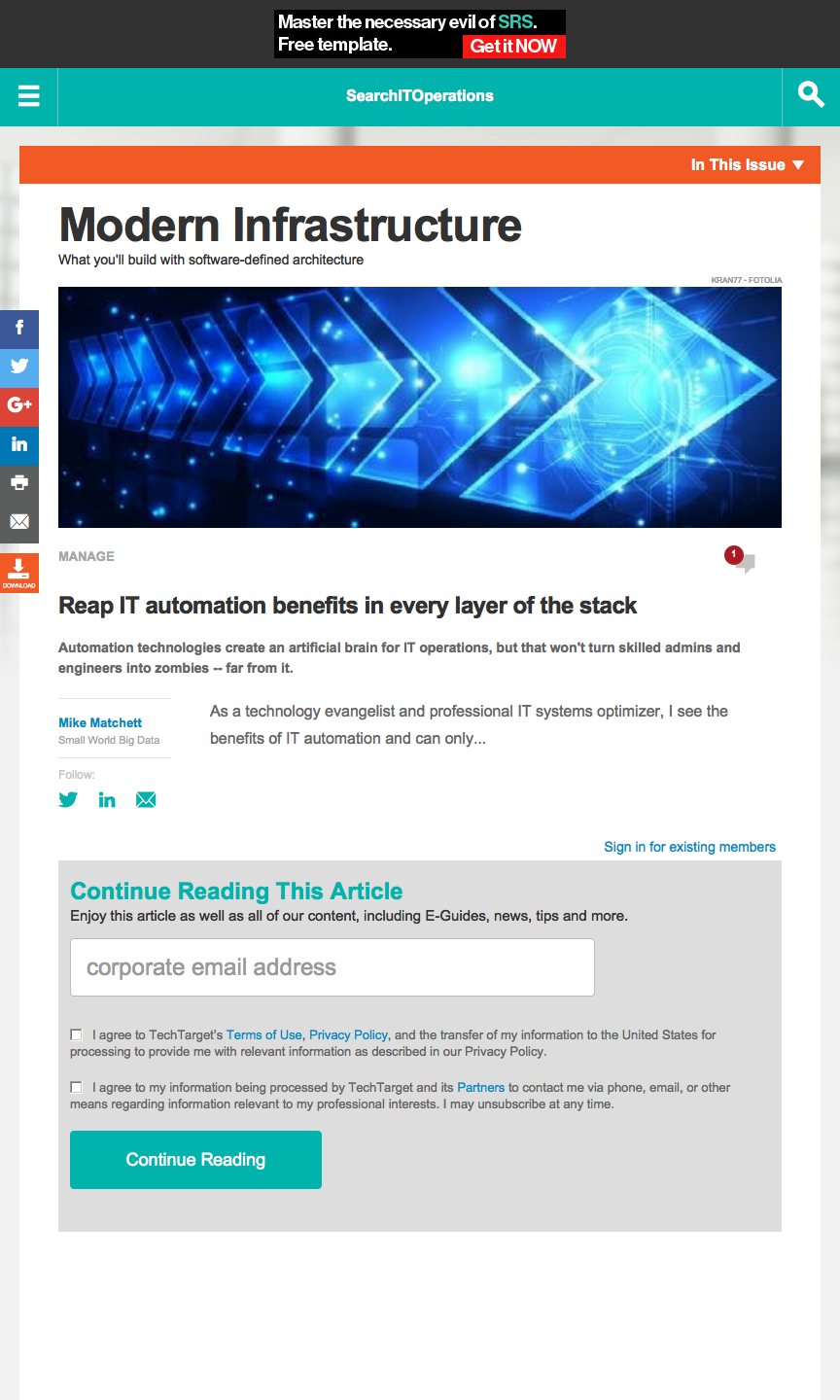Reap IT automation benefits in every layer of the stack

An IT industry analyst article published by SearchITOperations.
 Automation technologies create an artificial brain for IT operations, but that won’t turn skilled admins and engineers into zombies — far from it.
Automation technologies create an artificial brain for IT operations, but that won’t turn skilled admins and engineers into zombies — far from it.
Mike Matchett
Small World Big Data
As a technology evangelist and professional IT systems optimizer, I see the benefits of IT automation and can only champion trends that increase it. When we automate onerous tasks and complex manual procedures, we naturally free up time to focus our energies higher in the stack. Better and more prevalent automation increases the relative return on our total effort so that we each become more productive and valuable. Simply put, IT automation provides leverage. So it’s all good, right?
Another IT automation benefit is that it captures, encapsulates and applies valuable knowledge to real-world problems. And actually, it’s increasingly hard to find IT automation platforms that don’t promote embedded machine learning and artificially intelligent algorithms. There is a fear that once our hard-earned knowledge is automated, we’ll no longer be necessary.
So, of course, I need to temper my automation enthusiasm. Automation can eliminate low-level jobs, and not everyone can instantly adjust or immediately convert to higher-value work. For example, industrial robots, self-driving cars or a plethora of internet of things (IoT)-enabled devices that cut out interactions with local retailers all tend to remove the bottom layer of the related pyramid of available jobs. In those situations, there will be fewer, more-utilized positions left as one climbs upward in skill sets.
Still, I believe automation, in the long run, can’t help but create even more pyramids to climb. We are a creative species after all. Today, we see niches emerging for skilled folks with a combination of internal IT and, for example, service provider, high-performance computing, data science, IoT and DevOps capabilities.
Automation initiatives aren’t automatic
If one squints a bit, almost every IT initiative aims to increase automation.
A service provider has a profit motive, so the benefit of IT automation is creating economies of scale. Those, in turn, drive competitive margins. But even within enterprise IT, where IT is still booked as a cost center, the drive toward intelligent automation is inevitable. Today, enterprise IT shops, following in the footsteps of the big service providers, are edging toward hybrid cloud-scale operations internally and finding that serious automation isn’t a nice-to-have, but a must-have.If one squints a bit, almost every IT initiative aims to increase automation. Most projects can be sorted roughly into these three areas with different IT automation benefits, from cost savings to higher uptime:
- Assurance. Efforts to automate support and help desk tasks, shorten troubleshooting cycles, shore up security, protect data, reduce outages and recover operations quickly.
- Operations. Necessary automation to stand up self-service catalogs, provision apps and infrastructure across hybrid and multi-cloud architectures to enable large-scale operations, and orchestrate complex system management tasks.
- Optimization. Automation that improves or optimizes performance in complex, distributed environments, and minimizes costs through intelligent brokering, resource recovery and dynamic usage balancing.
Automation enablers at large
Successful automation initiatives don’t necessarily start by implementing new technologies like machine learning or big data. Organizational commitment to automation can drive a whole business toward a new, higher level of operational excellence…(read the complete as-published article there)
